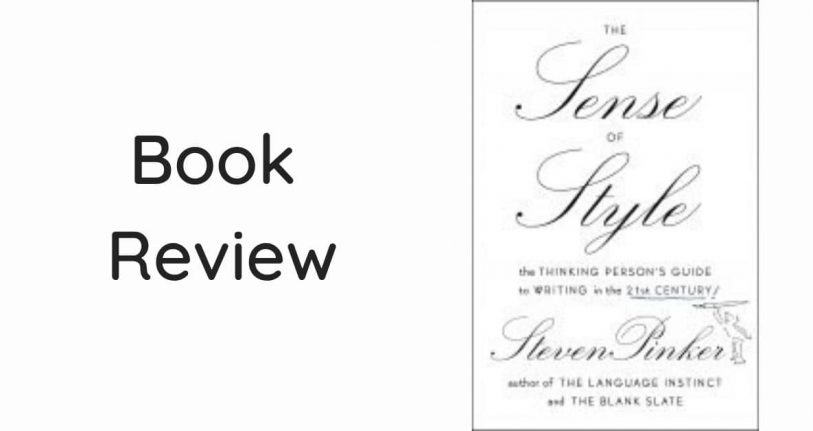Book Review: The Sense of Style
Else Gellinek
- February 26, 2016
- 4 min read
- Books and book reviews

Even if you think you have read enough style manuals to last you a lifetime, you should give this one a try.
Good writing is worth reading about.
Steven Pinker is no unknown and definitely does not need me to recommend his book. He’s a household name in linguistics and cognitive science—in part because he is such an entertaining writer.
The title of his latest book “The Sense of Style: The Thinking Person’s Guide to Writing in the 21st Century” says it all. This very enjoyable book is a compilation of his thoughts on style, writing and what not to do with the written word and it had me chuckling and taking notes at the same time. But Pinker is no fan of upholding stuffy rules or blasting people for alleged sins in style. As he says in the prologue:
Style manuals that are innocent of linguistics are also crippled in dealing with the aspect of writing that evokes the most emotion: correct and incorrect usage. Many style manuals treat traditional rules of usage the way fundamentalists treat the Ten Commandments: as unerring laws chiseled in sapphire for mortals to obey or risk eternal damnation … Language is not a protocol legislated by an authority, but rather a wiki that pools the contributions of millions of writers and speakers, who ceaselessly bend the language to their needs and who inexorably age, die, and get replaced by their children, who adapt the language in their turn. (p. 3)
Everyone’s always saying that translators are also writers. The annoying thing is they’re right. And this is why we should listen carefully to someone like Pinker. Now, there is no lack of books authored by professional writers or language teachers, pontificating about style and clear writing, telling us to choose nouns over verbs, run from passives and steer clear of fluff. But why?
Enter Pinker. He’s no copywriter, he’s a cognitive scientist and a linguist. Instead of just declaring that his approach will get us the desired results, he takes us on a journey through human perception and thinking, providing evidence to illustrate the effect of unclear and stilted writing. Pinker uses writing samples from all walks of life to demonstrate what went right or what went wrong. He analyzes and rewrites jargon, professionalese, impersonal passives, and abstract phrasing—sometimes with astonishing results. Compare “Participants were tested under conditions of good to excellent acoustic isolation.” with “We tested the students in a quiet room.” (p.73) Which sentence do you think more clearly conveys what happened?
Why you should read this book
The second half of the book is a very common-sense and still entertaining romp through linguistic issues that make some people’s blood boil. Pinker calls it a “judicious guide to a hundred of the most common issues of grammar, diction (word choice), and punctuation. These are the ones that repeatedly turn up in style guides, pet-peeve lists, newspaper language columns, irate letters to the editor, and inventories of common errors in student papers.”
Even though everyone who works with English is probably already well equipped with style guides, Pinker can add a fresh perspective. He can also provide arguments for clients and fellow translators who might get a little hot under the collar when talking about the finer points of splitting infinitives. After reading this book, you’ll have a clearer understanding why some source texts are so impossibly hard to translate. Pinker’s book won’t help you solve that, however, you can use what you have learned to make your translation less of a riddle to its readers.
In spite of his skepticism about many prescriptive language rules, Pinker makes a clear case for adhering to many conventional usages. He’s not advocating for chaos and anarchy but for a pragmatic approach that asks why something should be said a certain way—to achieve a writing style that adds a little beauty to the world. For everyone working with managerese, impenetrable technical or legal writing or deliberately vague academic prose, Pinker provides real examples of how to break through the fog of words and surgically remove the real message. I highly recommend this book!
PS Pinker’s book makes no secret that present-day standard rules of English can be seen as historical accidents. The linguistic forms surviving today are the ones that lived on due to unspoken agreements of a majority of language users (be it in number or power). There is no higher authority of what constitutes good English. Most of the rants about English (insert any other language here) being doomed by its ignorant speakers are at heart racist and classist. It is my secret wish that Pinker will be heard by those raising their angry voices about the language of young people, non-white people, texting, videos, rap music or whatever.


